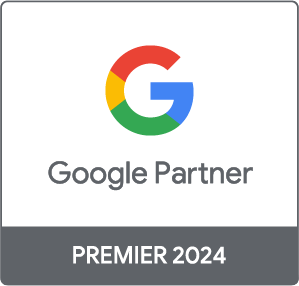The Impact of SEO in a Data Loss Context
The arrival of Law 25 in Quebec (which will be enforced in September 2023) and the disappearance of third-party cookies will impact your digital marketing efforts and the way in which you collect data.
In a new context in which quality data is harder to obtain, digital marketing strategies will be highly affected irrespective of discipline.
What will be the repercussions of losing data and what role will organic search play in this new context? Here we provide a few of our ideas on the subject.
The impact of SEO in digital acquisition
Consumers’ need to exert more control over the data they share has materialized in Quebec in the form of Law 25 and the disappearance of third-party cookies. These changes have an impact on the return on investment for ad campaigns. Increasing pressure on paid channels has already been evident for the past few years. According to Hunch, in 2021, Google, YouTube, Facebook, TikTok and Snapchat experienced increases in their CPMs ranging from 64% to 108%.
In this new paradigm, it goes without saying that inbound channels will gain importance and become even more profitable than before when compared with paid channels. Given SEO is an inbound channel, it’s an ideal ally for reaching your consumers. It’s important to note that SEO is already the main channel for traffic acquisition around the world (53.3% of all traffic to websites comes from organic search).
The impact of SEO on understanding your consumer
With the loss of third-party cookies, it’s necessary to revisit the ways in which you arrive at an understanding of your consumer.
To this end, companies must be able to rely on different sources of data and transform them into insights that will guide marketing decisions.
At the same time, we are also facing a loss of a portion of data coming from web platforms or paid campaigns. We therefore need to turn to other data sources to fuel our understanding of the consumer.
That’s where SEO comes in!
However, as I like to tell my team, “In the data world, working in SEO is like living on the wrong side of the tracks.” What I mean by that is that we don’t have access to the same resources as our colleagues working on paid channels do when it comes to audience data. This forces us to develop other methods to understand our audience and establish our strategies. Of notable mention is the use of machine learning (AI) to better understand consumer intentions when they use search engines. Such methods, which haven’t been affected by the new changes recently introduced, therefore gain value as sources of insight.
A number of tools are available to SEO experts:
- The market study through search engines, which lets us better understand the most popular products/services searched for by consumers. This also gives us an opportunity to compare the SEO market share of our clients compared to the competition.
- Seasonality calendar that let us better understand what consumers search for during different times of the year. This can be a highly enriching exercise that leads to new ideas for other marketing activities.
- Content Gap Analysis that let us better understand, through machine learning, consumer intentions when they use search engines to see if your site has content that responds to their search intentions.
The impact of SEO on other areas of digital marketing
SEO to support email
In order to respond to the paradigm shift happening in marketing, more and more companies are shifting their marketing budgets towards initiatives that strengthen customer loyalty. This is occurring notably through relationship marketing strategies that often begin with more robust email programs.
The deployment or optimization of a relationship marketing program depends on a company’s ability to capture primary persistent identifiers (in this case, email addresses) in order to activate them. To obtain these data, you first have to reach your consumers! This is where you need to rely on acquisition channels like paid media or SEO.
Given the increasingly important role of the organic channel in the acquisition phase, it will be essential to ensure coherence and interdependence between two areas of expertise: SEO and email marketing.
SEO to support user experience
As we have seen, primary (persistent) identifiers are necessary to understand users and guide customer retention initiatives. Amongst these initiatives, user experience on your platforms has an important role to play.
In addition to acquiring users on your site, the goal of SEO is to provide the content that is best adapted to the user’s search intentions. In a sense, SEO is user experience on search engines. Having an acquisition page that perfectly responds to user intentions will therefore have a positive effect on users’ experience of your site.
The same logic applies to conversion rate optimization (CRO) on your site.
SEO to support paid channels
Naturally, paid channels are experiencing more pressure than ever in a marketing world focused on privacy. But SEO can help, especially in terms of content for pages created as part of SEO initiatives. Let me explain.
For paid campaigns, in many situations, you are directing your consumers to your site. This is even more true for SEM. Providing the right content to the right person in response to the right issue is therefore extremely important.
Data originating from your SEO performance and search engines give you access to insights so you can identify content that best responds to the express intentions of users in connection with the themes you are interested in. Adapted content on the landing pages of your ad campaigns will therefore be more likely to perform well and reduce costs related to your ad bids. All of this is for the overall benefit of your campaigns.
Takeaways
Clearly, the application of Law 25 in September and the disappearance of third-party cookies will have a major impact on your digital marketing activities.
In this new reality, SEO is a significant asset because it supports a number of issues already being experienced by marketers, and these issues will only intensify with time. It’s not only a major acquisition channel offering excellent returns on investment in the long term — SEO also plays an increasingly important role in supporting insight generation, conversion and, as a result, the deployment of relationship marketing initiatives that rely on the acquisition of primary persistent data.


-1.png)










